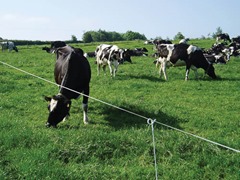Food and agribusiness sector reform: origin labelling for meat
 Orla Clayton and James Lawless examine the EU’s new plans for mandatory labelling, designed to add confidence in the food supply chain.
Orla Clayton and James Lawless examine the EU’s new plans for mandatory labelling, designed to add confidence in the food supply chain.
Over the coming year, the rules governing the origin labelling of meat are set to dramatically change, with important implications for farmers, industry and regulators. New European legislation will mean that, in future, country of origin information must be provided for pig, sheep, goat and poultry meat. This mirrors the longstanding regime for mandatory country of origin labelling for beef, which has been an EU law requirement since the time of the BSE crisis.
Under current labelling law, country of origin information for pig, sheep, goat and poultry meat may be provided by food businesses on a voluntary basis. Country of origin information only becomes mandatory where its omission would mislead the consumer.
The new EU Regulation on Food Information to Consumers (‘FIC’), adopted in 2011, established a general requirement for mandatory origin information on labels for fresh, chilled or frozen meat derived from pigs, sheep, goats or poultry. In December 2013, detailed implementing rules regarding origin labelling for these meats were adopted by the European Commission (the ‘Commission Regulations’). These will apply from 1 April 2015. From that date, meat labels for these animals must bear information on the country/countries in which the animal in question was reared and in which it was slaughtered.
The Commission Regulations set down complex criteria for determining where pigs, sheep, goats and poultry are deemed to have been reared. Broadly speaking, these criteria are mainly concerned with an animal’s age and, in the case of pigs, the animal’s live weight.
In particular, the Commission Regulations establish so-called ‘rearing periods’ which are used to determine the main country in which an animal was reared. Where an animal was reared in a number of Member States during a given rearing period, the label must indicate that the animal was reared in ‘several Member States of the EU’ and/or ‘non-EU countries’. Where an animal has been reared in several countries, the food business operator will not be obliged to list the different countries in which the animal was reared.
The meat label must also indicate the country in which the animal was slaughtered using the words ‘Slaughtered In:’.
 In future, the term ‘origin’ may only be used on labels if the animal from which the meat is derived was born, reared and slaughtered in a single EU Member State or in a single non-EU country. Food business operators are free to add additional information on the geographical provenance of pig, sheep, goat or poultry meat, such as the province or region in which the animal was reared and/or slaughtered.
In future, the term ‘origin’ may only be used on labels if the animal from which the meat is derived was born, reared and slaughtered in a single EU Member State or in a single non-EU country. Food business operators are free to add additional information on the geographical provenance of pig, sheep, goat or poultry meat, such as the province or region in which the animal was reared and/or slaughtered.
The Commission Regulations also require that traceability systems operate in a manner that permits the transmission of origin information along the food supply chain.
While many food business operators currently employ origin labelling as part of their marketing strategy, both businesses and regulators will need to re-assess current labelling practices in light of the FIC and the related Commission Regulations in order to ensure full compliance with Irish and European law.
About Arthur Cox
At Arthur Cox, we understand the opportunities and challenges presented by the growth of the food, agribusiness and beverage sectors. We have a team of multi-disciplinary lawyers who advise on everything from commercial and competition issues to regulatory compliance, packaging, labelling and advertising of food products and nutrition and health claims. In emergencies, we know how to help you with product recalls and crisis management. We make it our business to give you strategic advice on your business.
Orla Clayton is a Senior Associate with the Food and Agribusiness Group at Arthur Cox.
Tel: 01 618 0437
Email: orla.clayton@arthurcox.com
James Lawless works within the Food and Agribusiness Group at Arthur Cox.
Email: james.lawless@arthurcox.com






